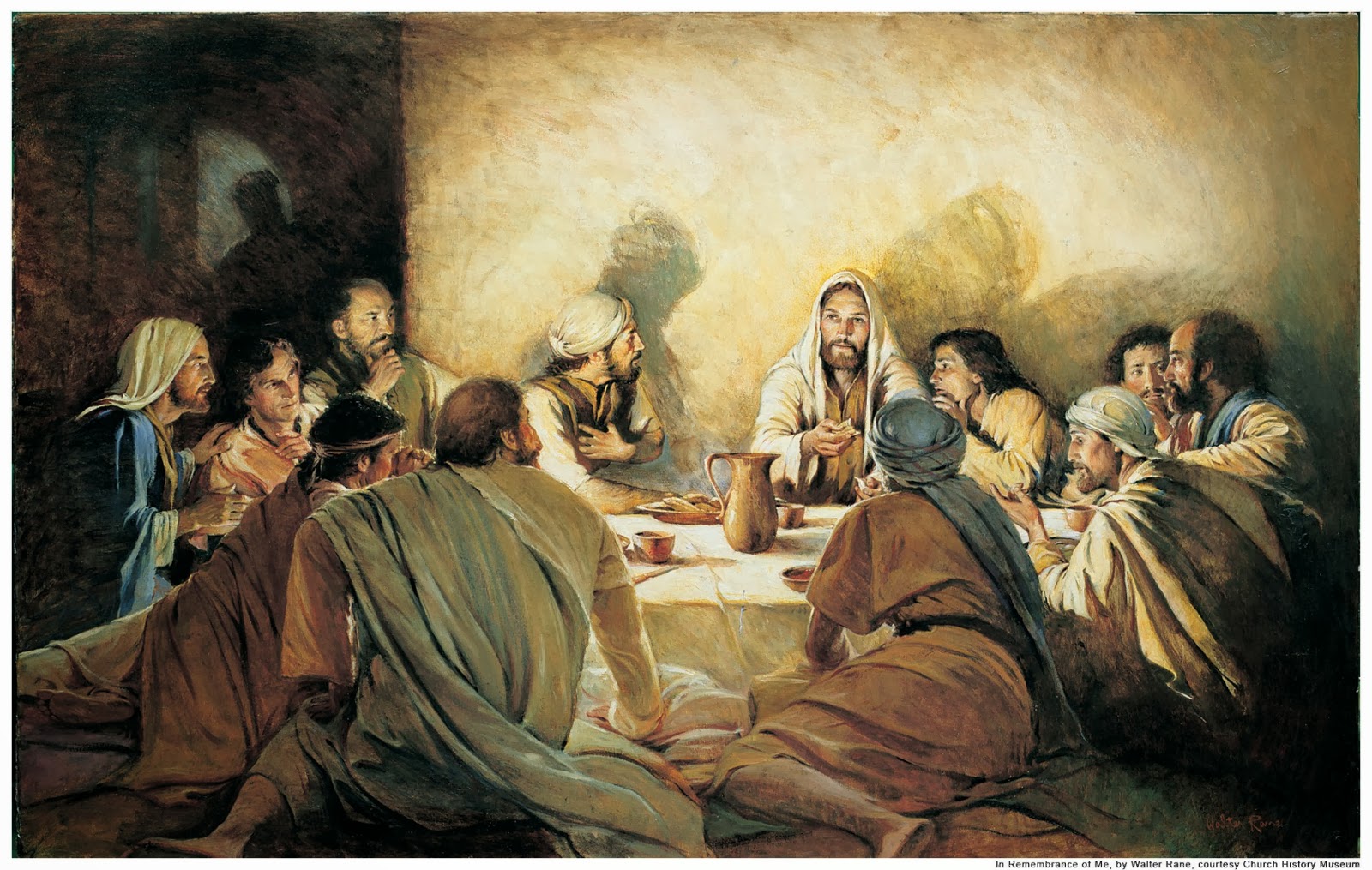As Jesus a nd His disciples sat around their final Passover meal together, Jesus took
nd His disciples sat around their final Passover meal together, Jesus took
bread, blessed it, broke it, gave it to His disciples, and said, “Take, eat, this is My body” (Mt. 26:26).
Eat my body? What did Jesus mean when He told His disciples to eat His body?
As if that is not strange enough, He then took a cup of wine, gave thanks and said, “Drink from it all of you, for this is My blood . . .” (Mt. 26:27-28a).
When telling parables, Jesus frequently explained what they meant. If He didn’t, the disciples often asked. However, Jesus didn’t explain what He meant in this scene. And nobody asked.
Nobody questioned because they knew exactly what Jesus intended. No further explanation was needed. Jesus was inviting His disciples to join Him in a blood covenant.
The ancient rite of cutting a blood covenant was familiar in their society. His followers knew the ritual and understood the significance of eating flesh and drinking blood as an important step of a covenant ritual.
A blood covenant is the most binding of agreements. In the East, a friend by covenant is closer than a brother by birth. In some cultures, a marriage between those whose parents were linked by a blood covenant was deemed incestuous. (H. Clay Trumbull, The Blood Covenant: A Primitive Rite and It’s Bearing on Scripture, 1893).
In history, literature, and in scripture, there are many records of making covenants. However, over the centuries, crucial elements have been omitted or changed, leaving only semblances of the ancient ritual today. Although the concept of covenant is almost unknown in the Western world today, during biblical time, it was a common practice all over the world. Everyone understood the exchanges of covenant and the significance of each exchange.
In Greek, a single word is translated as “covenant” or “testament.” The very names “Old Testament/Covenant” and “New Testament/Covenant” tell us that covenant is the central theme of God’s Word to us, and yet many of God’s people have been oblivious to the significance of the covenant for centuries.
A blood covenant forms the closest relationship possible. In the Old Covenant, the almighty God committed Himself to be Abraham’s God, walking in close fellowship with Him, sharing His all with him.
Over and over, God has proved Himself faithful to the covenant, because of His great desire to walk in intimate fellowship with mankind. When Abraham’s descendants were not able to keep up their end of the covenant, God proved His faithfulness by establishing a better covenant through His only Son, Jesus.
Through Jesus Christ, the holy, almighty, living God has done everything to make it possible for us to enjoy intimate fellowship with Him.
And yet, while we long for close relationships, for someone to really love and care for us, instead of responding to God’s love, we tend to look around us to fill that longing. We chase a tainted shadow rather than embracing the only One who has covenanted Himself to meet our every need.
Learning the exchanges of the ancient ritual and what each one symbolizes and then seeing them in Scripture and God’s faithfulness to keep His promises (in spite of our unfaithfulness) exploded my knowledge of who God is and anchored me in the knowledge of His love.
When I try to express the greatness of His love, I don’t have words to begin because it’s too big. When I focus on it, I become overwhelmed with His goodness, mercy, and compassion. His love and goodness is too big to express.
And yet, instead of seeking God, even those of us who know Jesus often look to each other, to entertainment, sports, things, popularity, power, and . . .—to empty, temporal sources that will never satisfy. We are so distracted by our wants that we miss the One who can satisfy those desires.
The great and powerful God not only desires an intimate relationship with you and me, He has committed Himself to make it happen. With the most binding agreement possible, He has promised (covenanted) His all to us, if we will give our all to Him in return.
That’s what covenant is—except there’s so much more when we give our limited, sinful self in exchange for His awesome greatness. It is truly the greatest exchange of all times, and Jesus continues to say, “Take, eat, this is my body.” He wants to be one with us.
The question is whether or not we are willing to make that exchange, and to live in it daily.
———-
Learn more about the exchanges of the ancient ritual what it means to walk in covenant with the living God.